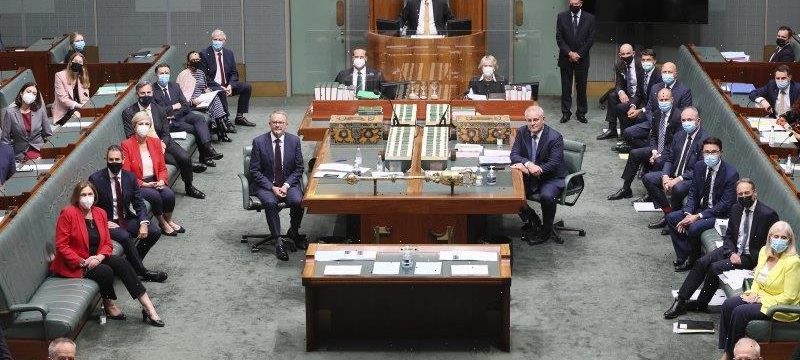The disparity between the careers of elected politicians and the jobs of most Australians is widening due to a “feedback loop” between the professional and political classes, experts have warned.
Lawyers, business executives and political advisers dominate the political landscape, overshadowing healthcare workers, young people and others who are not proportionally represented.
New analysis of candidates in the upcoming election and the incumbents has revealed the rise of political consultants and advisers, up from 2 per cent of MPs in 1988 to 11.3 per cent in 2019. Business executives and managers have risen from 17 per cent in 1988 to 23.8 per cent in 2019.
Over the past 50 years, the major parties have shifted away from mass membership bases to “electoral professional parties” meaning they rely more on people in the party system, such as campaigners and advisers to be candidates, rather than the broader public, senior lecturer in politics at Sydney University Dr Peter Chen said.
“The most glaring example of the parliament not reflecting the people is gender representation,” he said.
But Chen said there was a difference between substantive representation (standing up for the beliefs and values of your voters) and descriptive representation (where you look like the voters).
“Descriptive representation is rubbish in a way because we have electorates and one member can’t look like everyone in the seat,” he said.
ANU Research Fellow Dr Patrick Leslie said it was difficult for the major parties to recruit candidates from outside their institutions.
“If the people who are next in line, who’ve gotten around the factional landscape, been involved since they were young and are a viable candidate, it’s hard to say to them ‘we should be picking someone else’.”
Leslie said the most under-represented industries were ‘blue-collar’ workers from manufacturing, construction and transport. Parliament also has a shortage of retail and hospitality workers.
Healthcare workers are also “seriously under-represented” per head of population in parliament despite the billions spent in the sector, he said.
Nurses and midwives protest in Sydney’s CBD in March 2022.Credit:Louise Kennerley
“Research on the abundance of lawyers in the US House of Representatives suggests that it is not facilitating skills, but networks that ensure election success,” Leslie said.
Before his unsuccessful tilts as a Liberal candidate for Sydney seats in the 2019 state and federal elections, Riley Munro worked for two MPs, which he says helped him “jump into public life”.
“(There is) a bit of a feedback loop where you have professionals that work in an industry that sees them rubbing shoulders with the seat of power, and it shows them how they can get involved, and it shows them what is involved,” Munro said.
“People that have the jobs we need insights from (such as nurses) are more consumed by their roles (because they are so busy) and not able to step into politics as easily as people who simply consult.”
Professor Lucas Walsh, director of the Monash Centre for youth policy said young people are under-represented and as a result are moving away from established parties and unions.
“They’ve moved towards more issue-based politics such as the school strikes for climate and various GetUp campaigns that ran at the last election,” Walsh said. “They’re much more interested in key issues and the data suggests for this election it’s housing affordability and climate change.”
There are 1,645,091 young people (aged 18 to 24) enrolled to vote and looking for “authentic representation”, which also drove the school climate strikes where they pleaded for their voices to be heard here and around the world, Walsh said.
“We’ve seen temporary groundswell movements in previous years like GetUp which were good at mobilising young people but not necessarily seeing that converted (into electoral results),” Walsh said.
The Labor and Liberal parties were contacted for comment but did not respond.
Cut through the noise of the federal election campaign with news, views and expert analysis from Jacqueline Maley. Sign up to our Australia Votes 2022 newsletter here.
Most Viewed in Politics
From our partners
Source: Read Full Article

